Joe Cruz is a professor, writer, and expedition cyclist. He teaches Philosophy and is Chair of the Cognitive Science program at Williams College, where he specializes in philosophy of mind and knowledge. He has toured and raced bikes the world over, most recently in the Andes of South America. I recently had the opportunity to catch Joe between trips to pick his brain and ask him a few questions. The images were pulled from his website, which is an incredible journey on its own. Pedaling in Place.
You clearly love to travel and a bicycle is obviously your preferred platform. What about bicycle travel appeals to you?
I’ve spent a fair bit of time backpacking in the US and abroad, and I love backcountry driving, especially out West. But these days, I far prefer exploring by bike, especially in remote places and especially where the cycling is demanding.
The thing is, bicycling is movement at a human scale. The landscape moves alongside you at a pace suited to perceiving it; you can make out the detail, you can feel the changes in atmosphere both physical and cultural, and you start to synchronize with the rhythms of the place in you’re in. Where you are on any given day is connected to where you were yesterday and the day before because you’ve been moving at a speed that your body can know. That continuity is illuminating and reassuring.
Moreover the bicycle is human for the people in the places you visit. When you stop to have a chat about directions, or sit at a roadside stall for a snack, or ride alongside kids who are pedaling home from school, people can relate to the stories you tell about where you’ve been and what you’ve seen. Your sharing something that isn’t abstract for them, because its something that’s wonderful or funny or notable that happened to you in a village or on a mountain that they know about and that’s only 50 or 200 kilometers away. A lot of times they can picture your days because they know the place and maybe they ride bicycle themselves.
There’s never anything intimidating about a bicycle, you’re just a kinda loopy guy who showed up and you’re harmless. And for you, there’s no easy way to hide or to manufacture a distance. That sense of vulnerability in turn puts you in touch with the idea of relying on people, of needing them.
And then there is the sense effortfulness itself. The loaded bicycle maybe weighs fifty pounds plus, you breathe hard up the hills and wake up the next morning with the pleasant ache of the days before. For me there’s exhilaration and satisfaction in that aspect of it. I’ve written before that riding a bike hungry and at high altitude in Tibet or Peru is a chance for me to crack or break my consciousness. That probably sounds a little esoteric or mystical, but I don’t mean it that way. It’s rather that hours of effort and working hard can dissolve your focus on yourself, and spread your sense of who and what you are into the landscape. I crave it and find it while cycling.
Finally, there’s no sense on a bicycle of mastering an environment with a machine. Don’t get me wrong: I grew up working on car engines with my father, I love motorcycles, I’m not against technology, and I feel a kinship with guys I run into in the woods in, say, Vermont or New Mexico who are on quads or in jeeps. Those things are cool. But when you’ve pedaled all day for the tenth or fortieth day in a row, you don’t have the to me misguided idea that you wrestled the universe down with a machine. Instead, you achieved an equilibrium and harmony with and through the hardship. Yes, of course a bicycle is a gloriously efficient machine, too, but your body is the essential source of the progress.
Having traveled by bicycle on several different continents, in places far outside normal travel circles, how do you choose your travel destinations? The Wadi Rum for example doesn’t seem like your typical cycling holiday.
It would be easy to cop a bunch of bravado and say that I like places that are exotic and unusual and that will score big points at the hostel when everyone is gathered around bragging about where they’ve been. Yeah, there’s an element of that, but I hope there is also something stable about where my curiosity takes me: I like places where people face hardships in adapting to the landscape but have anyway, I like places where there is a living history in the sense of there being signs of culture for a long time, and I like places where I’m suspicious of how they’re portrayed in the media.
I don’t prefer to go to places where there aren’t people, that’s not why I travel, though I’ve done some of it and will occasionally mix that kind of experience in just for the challenge of it. But I’m not attracted to weeks and weeks in, say, Antarctica, not to mention I flat out don’t have the survival chops of the folks who are into that. (All respect, incidentally.)
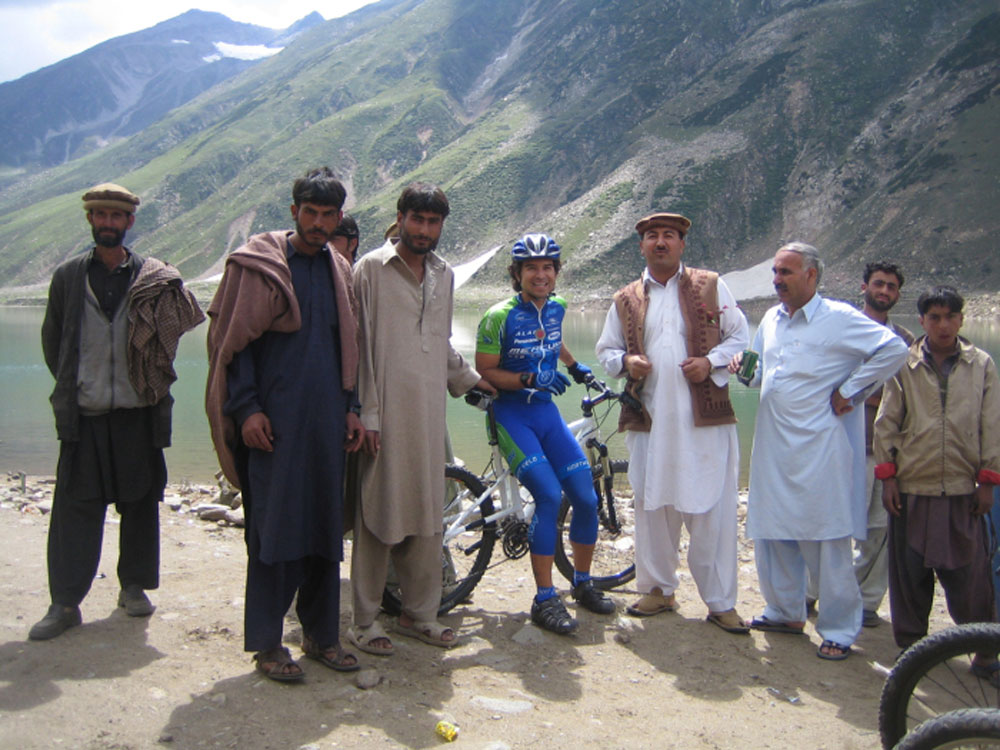
Your website is a captivating catalog of your global wanderings, and proof you suffer from incurable wanderlust. How does an adventurer of your caliber reconcile living in the gilded cage that is New York City? It seems like an unlikely address for an adventure cyclist.
I appreciate the kind words about the blog. And I do suffer incredible wanderlust. My wife Margaret and I got a chuckle at NYC as a “gilded cage.” That not inaccurate, but I suppose I find myself resonating more with the gilded part. I was born in NYC, and, for me, the energy, the crowdedness, the sheer abundance of creative and interesting people, not to mention the global cultural outlook are all appealing.
It’s certainly different, adventure-wise, from living in, say, Tucson, Arizona, where I was a graduate student. That’s another town I love. There, we used to load up the trucks every break we got to head out to the desert or up north to higher altitudes. Living in New York City makes it so that my bicycle adventures are more intentional than the spontaneous ones I had living out West. (And, in fairness, I have one foot in New England, since I teach in Williamstown, Massachusetts. The adventuring in Vermont, New Hampshire and Maine is first rate.)
Margaret and I go to see art almost every weekend we’re home, we go to opera and plays, and there are reading groups at the universities in the city that I participate in. I completely get it that a lot of my friends aren’t “city people.” I don’t usually think about things that way.
Of course, for international travel where the first leg of the trip is on a plane, there are few places better than NYC in terms of convenience and cost.
In my opinion, New York City is a really good part of the USA and shows us what we can be. So, too, is Montana and Texas and Louisiana and a thousand places in between.
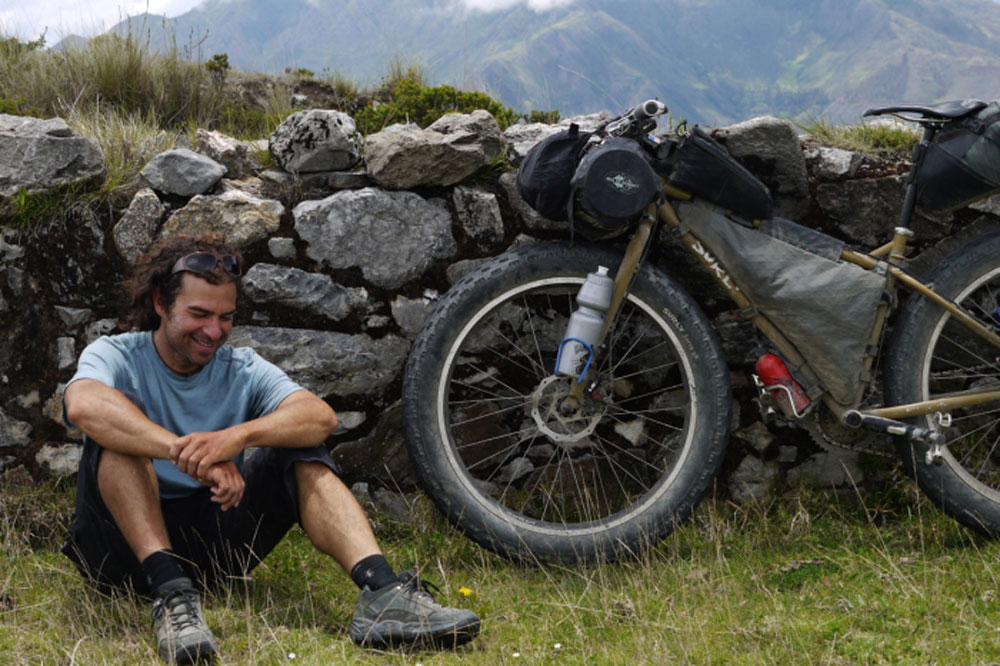
As a professor of philosophy, how do your travels fold into your work? Are they muse or escape? Does being a teacher of philosophy give you additional insight into the cultures you experience?
Most of all I hope that traveling by bicycle make me a better philosopher. I spend so much time in seminars or in the front of lecture halls making claims about human nature, the last thing I want to be is someone who’s never actually met and talked to people. One way to describe my work in philosophy is as an interest in why people believe what they believe, and that includes psychological, biological, cultural, historical, religious and political dimensions. Maybe some portion of that one can learned in books, but I think the bigger part is going to come from talking to people and learning a place. There’s absolutely the danger that those impressions from travel will be superficial and distorted, so I always want to plug them into a bigger background and then talk to my family, friends, colleagues and students about it.
So, travel isn’t an escape from work in that sense, even if it might be in some others, like escaping from my assumptions and expectations.
I won’t claim to have additional insights into the places I visit, but my philosophical views for sure inform how I experience travel. Ready for some cheesy stuff that I really believe? I think people are basically good and that human beings have more in common than is different between us. That makes the differences tremendously fascinating, as they are against a backdrop of knowing that everyone is trying to make their way in much the same way that I am. Maybe to be a philosopher I’ve needed to be willing to challenge my own or my own culture’s ready answers to the question of how to live. That makes it so that I don’t assume other people’s way of living is wrong. No, I’m not a cultural relativist, but my default is an openness and wanting to understand.
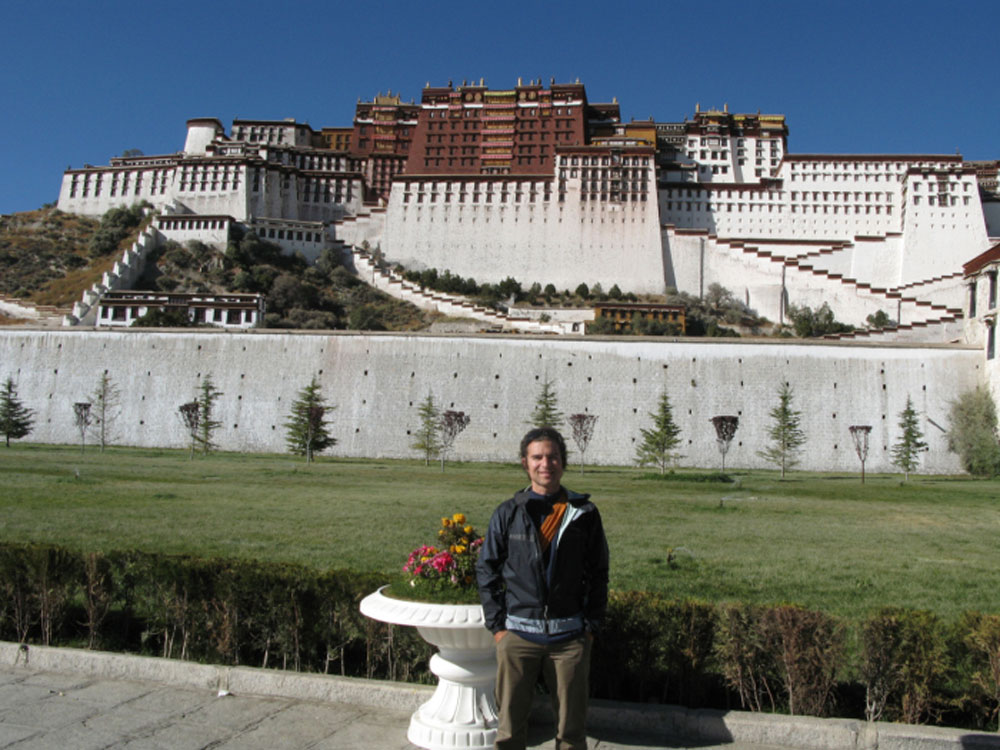
It’s not a real brainy question but, do you have a favorite travel destination?
Not to go all philosophy professor on you, but can I break the question up a bit? Of all the places I’ve been, I still find Southern Utah—east of I-15, south of I-70, as far as Moab or maybe into Colorado to Durango, north of and including the Grand Canyon—the singularly most incredible landscape I’ve been to. So if the question is what’s the most beautiful place I’ve been to, that’s it.
Culturally, I’ve really enjoyed India. The cliché is that people divide absolutely sharply between those who love India and those who hate it. I’m certainly in the first camp, the history, the coming together of Hindu, Muslim, and Buddhist (and many other) religions, the varied climates. I could go back there again and again.
For big rugged landscapes that require you to concentrate and push yourself, Asia is hard to beat, with Pakistan, Nepal, Tibet.
And who doesn’t love Italy?
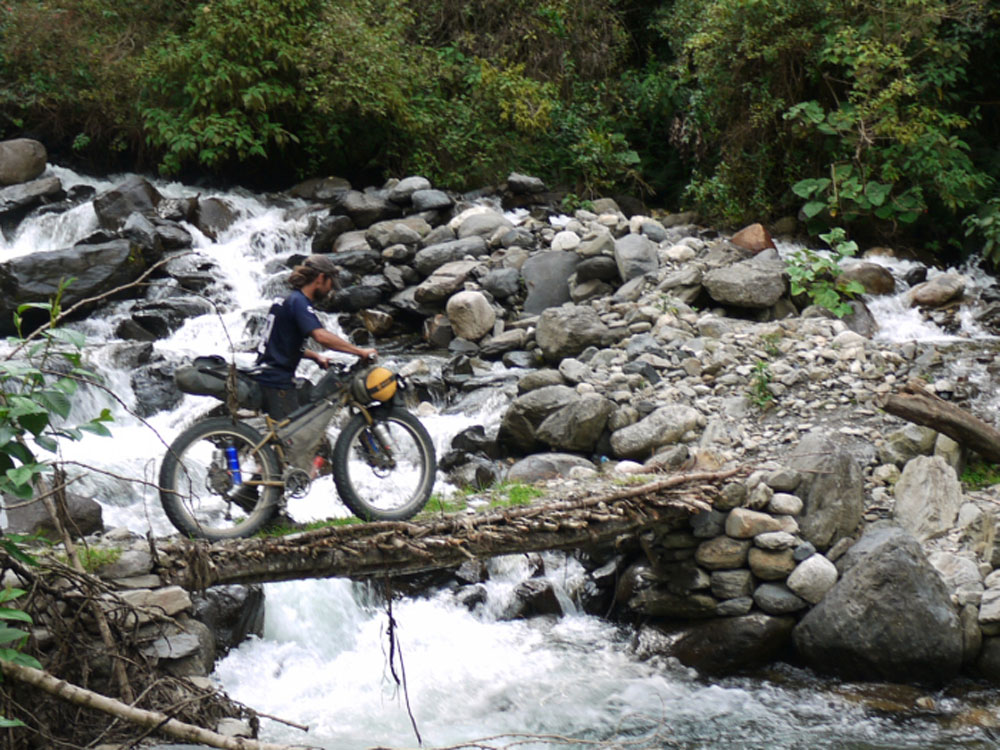
If you could compel people to get on a bicycle as a means of travel, what would be your most sage bit of advice?
Most sage? How about that bicycle travel has very little to do with bicycling! What I mean is that, to explore on bicycle, you don’t need to conceive of yourself as a cyclist. You certainly don’t need to train for months or years in advance, buy fancy form fitting clothes, geek out on bike equipment (though there’s nothing wrong with that) or ride with the local weekend hammerhead peloton. I can say as a former very serious racer that those things are great, but they are something else entirely from what I think of when I think of bicycle travel.
When traveling by bicycle, biking is the means and the tool, but the aesthetic dimension is the main thing. Being open and curious, being smart about your limits and where you are but not manufacturing irrational dangers, being willing to experience the extremes of solitude and of spending time with people: those are the main things to cultivate and find before setting out on bike. I’m still happily on a learning curve in all respects.
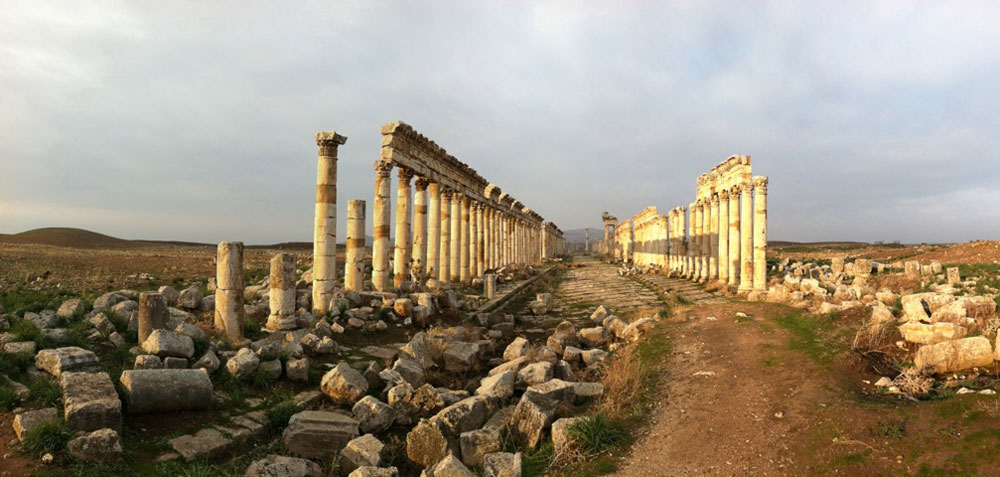
Lastly––what’s next?
I have a small window in January where I think I’ll head down to Northwest Argentina to meet up with my old friend and badass adventure photographer Cass Gilbert for some high altitude exploration.
Longer term, the ever growing ideas list includes: Fat Bike touring Borneo; Southampton Island in Nunavut; jungles of West Africa; backcountry Iceland; and visiting friends and riding the high country in Iran.


